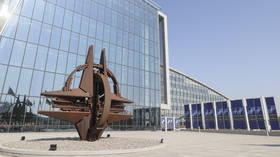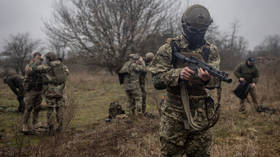Heat flash over Sinai prior to Russian plane crash reportedly detected by US satellite
Just before a Russian passenger airliner crashed in Egypt’s Sinai on Saturday, a US infrared satellite reportedly detected a heat flash in the same vicinity, indicating that an explosion may have happened on board.
The US intelligence community believes that a fuel tank or bomb may have been the source of the heat signature, NBC News reported. The same satellite ruled out a missile attack, as it didn’t detect a heat trail that a rocket engine would have produced, the channel’s source said.
The heat flash may not be related to the crash since the Sinai Peninsula is a volatile place with regular military activity, a Pentagon official told ABC News.
BREAKING: First footage from #7K9268 crash site in #Sinai (VIDEO) https://t.co/8C4F4PaWhcpic.twitter.com/yBo2cj1hIS
— RT (@RT_com) October 31, 2015As the investigation into the deadliest air incident in Russia’s history, which has claimed 224 lives, mostly Russian, is under way, officials say it’s too early to pronounce the cause of the crash - and that no version has been ruled out.
Preliminary data indicates that the Airbus 321 en route from Sharm-el-Sheikh to St Petersburg sustained heavy damage as it was traveling at an altitude of over 10,000 meters and the crew had no control over its descent. Rescue workers have found 12 large pieces of the plane’s hull at the crash site, indicating how badly it was damaged in the incident, Russian officials reported.
“There is much work to be done to study the debris of the aircraft and the data of the flight recorders,” the head of the Russian aviation authority, Aleksand Neradko, told Rossiya 24 news channel. “The debris is indeed spread over a large area indicating that the plane fell apart at a high altitude. But speculating on the cause is premature.”
READ MORE: Only external force could have broken apart crashed Russian airliner – owner
The plane’s owner, Kogalymavia, which uses the brand name Metrojet, insists that neither human error nor technical malfunction could have caused the crash, and cited an "external force" as the cause of the crash. The Russian authorities have said it is too early to confirm the claim.
LISTEN MORE:
Earlier a militant group affiliated with the terrorist organization Islamic State claimed to have taken down the Russian plane with a missile. The claim was deemed unlikely to be true by Egyptian and Russian officials, since the militants don’t have surface-to-air missiles with a range long enough to attack high-flying passenger planes.












